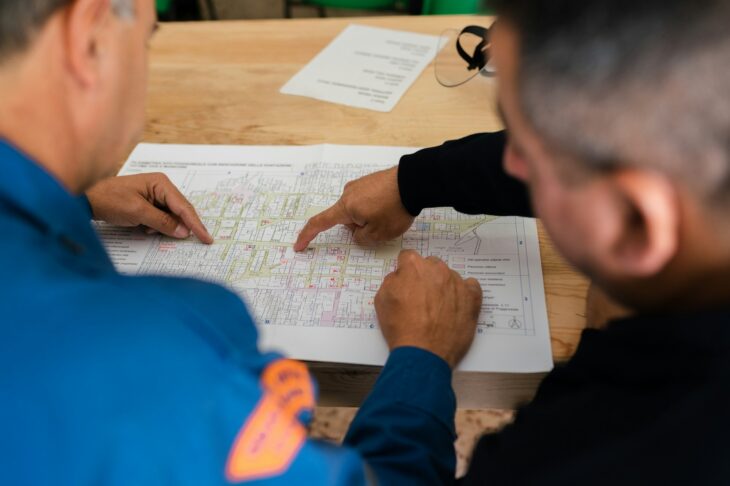
Mastering the Complexities of Veterans’ Disability Claims
Serving your country is a noble act that requires immense sacrifice. However, if you’re a Nebraska veteran who has suffered a service-connected disability, navigating the VA claims process can be overwhelming. This guide empowers you with the knowledge you need to pursue the disability benefits you deserve confidently.
Unfortunately, for many of our bravest, the battle does not end upon leaving the service. Veterans’ Disability Benefits exist to honor their sacrifices by helping those who have suffered service-related injuries or illnesses. It’s not just a policy but a nation’s gesture of lasting gratitude.
This assistance enables veterans to maintain quality health care, livelihood, and adaptability to civilian life. Fundamentally, these benefits form a critical support system, yet understanding how to access them can be challenging.
The Role of Legal Assistance in Veterans’ Disability Claims
Obtaining knowledgeable legal assistance from Nebraska lawyers can often make the difference between success and disappointment in the claims process. Experienced lawyers can guide complex VA procedures, help organize the required evidence, and represent veterans during critical appeals.
The nuanced understanding of legal requirements and insightful strategies to counter potential denials highlights the value of experienced legal representation, such as that provided by Nebraska lawyers who specialize in veterans’ claims.
Eligibility Criteria for Veterans’ Disability Benefits
Becoming conversant with the eligibility criteria establishes the foundation for a veteran’s disability claim. It is critical to understand that not all service-related injuries are immediately recognized as eligible for compensation. Veterans must provide proof of their medical condition and its direct connection to their military service.
Additionally, the type of discharge from the armed forces significantly affects eligibility; only those with discharges that are not dishonorable may qualify for these benefits. Familiarity with these details can streamline the process and set realistic expectations for veterans seeking support.
Common Challenges Faced During the Claims Process
Securing Veteran’s Disability Benefits can be rife with administrative hurdles. Understanding paperwork, meeting strict deadlines, and navigating the complex Department of Veterans Affairs procedures can delay or derail claims. Veterans often contend with a lengthy review process, which can be daunting and intimidating.
Preparation, an early start, and a systematic approach to these challenges can significantly bolster a veteran’s ability to manage the claims process effectively. Acknowledging these potential issues can improve readiness and emotional resilience when facing such obstacles.
How to File a Claim for Veterans’ Disability Benefits
Filing for Veterans’ Disability Benefits is a process that requires precision and attention to detail. It begins with completing and submitting the VA Form 21-526EZ, which can be done online via the VA’s website, in person at a regional office, or with the help of a qualified representative.
The application must include personal information, details about military service, and evidence linking the disability to service. Due to the significance of this initial step, the various support services provided by veteran organizations and legal professionals should be utilized to ensure a thorough application submission.
Understanding the Ratings and Appeals Process
After filing a claim, veterans receive a disability rating from 0% to 100% to determine their entitled benefits based on the severity of the disability. A clear comprehension of this system is critical for veterans to ensure they receive a fair evaluation.
If the outcome of the rating is unsatisfactory or deemed inaccurate, veterans have the right to appeal. Staying well-informed with the latest guidelines and updates, such as those provided by the Department of Veterans Affairs, is critical for those engaging with the rating and appeals process.
The Impact of Disability Benefits on Veterans’ Lives
Disability benefits serve as a lifeline for many veterans, affording them the financial stability and recognition they justly deserve. These provisions enable veterans to obtain necessary medical treatments, support their families, and transition from military to civilian life more comfortably.
The positive real-life implications of receiving these benefits are profound and far-reaching, extending beyond mere financial relief to fostering a renewed sense of purpose and adequacy.
Addressing Mental Health: PTSD and Disability Claims
Post-traumatic stress disorder (PTSD) presents additional complexities within the context of disability claims due to its nuanced nature. Veterans who have PTSD often encounter additional scrutiny and difficulty in proving their condition is service-related. It underscores the necessity for thorough documentation and possibly expert testimonies.
Furthermore, PTSD’s impacts on personal and professional spheres magnify the urgency of recognizing and effectively addressing mental health within the framework of Veterans’ Disability Benefits.
Looking Ahead: The Future of Veterans’ Disability Benefits
As legislation evolves and public awareness of veteran issues grows, the dynamic field of veterans’ benefits continues to adapt in response to the changing needs of veterans. Legislative efforts often aim to simplify the claims process, expand eligibility criteria, and increase benefit amounts.
An ongoing dialogue between veterans’ advocacy groups, lawmakers, and the public is necessary to ensure the sustainability and improvement of veterans’ support systems for future generations.
Conclusion
The Veterans’ Disability Benefits system remains an emblem of national gratitude towards those who have sacrificed for our freedoms. While the process is complex, familiarizing oneself with the requirements, preparing for potential challenges, and seeking the proper support can lead to successful outcomes.
Engaging with this system demonstrates more than individual advocacy; it reflects a community’s commitment to honor the service of its members by ensuring they receive the benefits they’ve earned and deserve.

